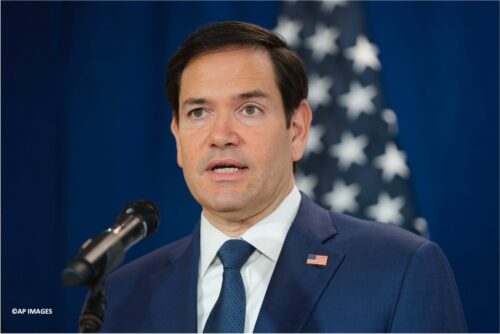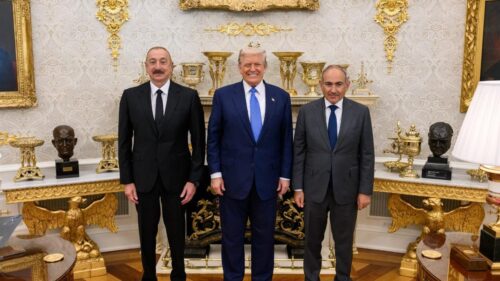
Response to Ararat Mirzoyan
Ani Abaghyan is from Artsakh. The question she raised during Foreign Minister Ararat Mirzoyan’s press conference was about her, about her long-desired return to her homeland.
While the foreign minister accused Ani and countless other Artsakh residents of discussing the issue of their return after coming to Yerevan, Ani continues to fulfill her role as a journalist. She conducts interviews with experts, analysts, public and political figures, and diplomats who argue that a collective return to Artsakh is possible and that the state’s positions must be strengthened, along with a change in both the negotiation agenda and the negotiator.
In her 22 years, Ani has experienced the path of exile twice, neither by her choice nor fault—first from Hadrut in 2020 and again from Stepanakert in 2023. Even on the path of exile, she worked and inspired hope for all of us.
For example, she prepared a report about Artsakh women baking bread and feeding their compatriots along the way. The depopulation, dispossession, and displacement of Artsakh is also a failure of diplomacy—a diplomacy that did nothing tangible to open the lifeline that had been closed for months and to prevent our compatriots from being left homeless and destitute.
Instead of blaming the people of Artsakh and their former and current leaders for ceding Artsakh and closing the book on the region, Mirzoyan, who holds the title of Armenia’s top diplomat, had better focus on working—whether behind closed doors or through secret consultations with more experienced diplomats and competent specialists. After all, discussions about the return of Artsakh residents are also happening on international stages, from Emmanuel Macron and French diplomats to Former Prosecutor of the International Criminal Court Luis Moreno Ocampo and U.S. senators.
When Mirzoyan refers to those considering the return of Artsakh residents as “people who say tongue-twisters,” who is he implying—those officials, the Artsakh residents dreaming of return, or the Armenian diplomats opposing him?
It seems that other people are talking about the collective return of Artsakh residents and their rights and problems more than those who are officially obligated not only to talk but also to act.
Do you remember the times, Mr. Mirzoyan, when you seized every opportunity to visit, as you used to say, your beloved Artsakh, when you considered the Artsakh movement and liberation struggle to be the most glorious page of Armenian history, when you published photos from Gandzasar, the spiritual center of Eastern Armenia, and spoke of the 13th-century struggle of the Hasan-Jalalyans, claiming that no one could drive a wedge between Armenia and Artsakh? What has changed? How have you and the state become the ones driving the wedge?
It turns out that everyone is to blame for the loss and depopulation of Artsakh, except for the Armenian state, represented by your government—the guarantor of Artsakh’s security, which however recognized Artsakh as part of Azerbaijan—whose failed diplomacy led to the collapse of Armenia’s comprehensive security system. Everyone is to blame—from the political leaders imprisoned in Baku (some of whom you used to meet frequently and even worked at Ruben Vardanyan’s IDeA Foundation) to the Artsakh residents who fled from Azerbaijani aggression, and from Russia to perhaps Iran, the U.S., China, and of course, everyone from the “former ones” to the “present ones” who do not understand your incompetent politics. Everyone—except you. Perhaps acknowledging your own inability and stepping down in time could have prevented the depopulation and downfall of Artsakh. Maybe it’s not too late to make the collective return a reality.
Maria Karatoyan
ABC Media’s Editor-in-Chief


